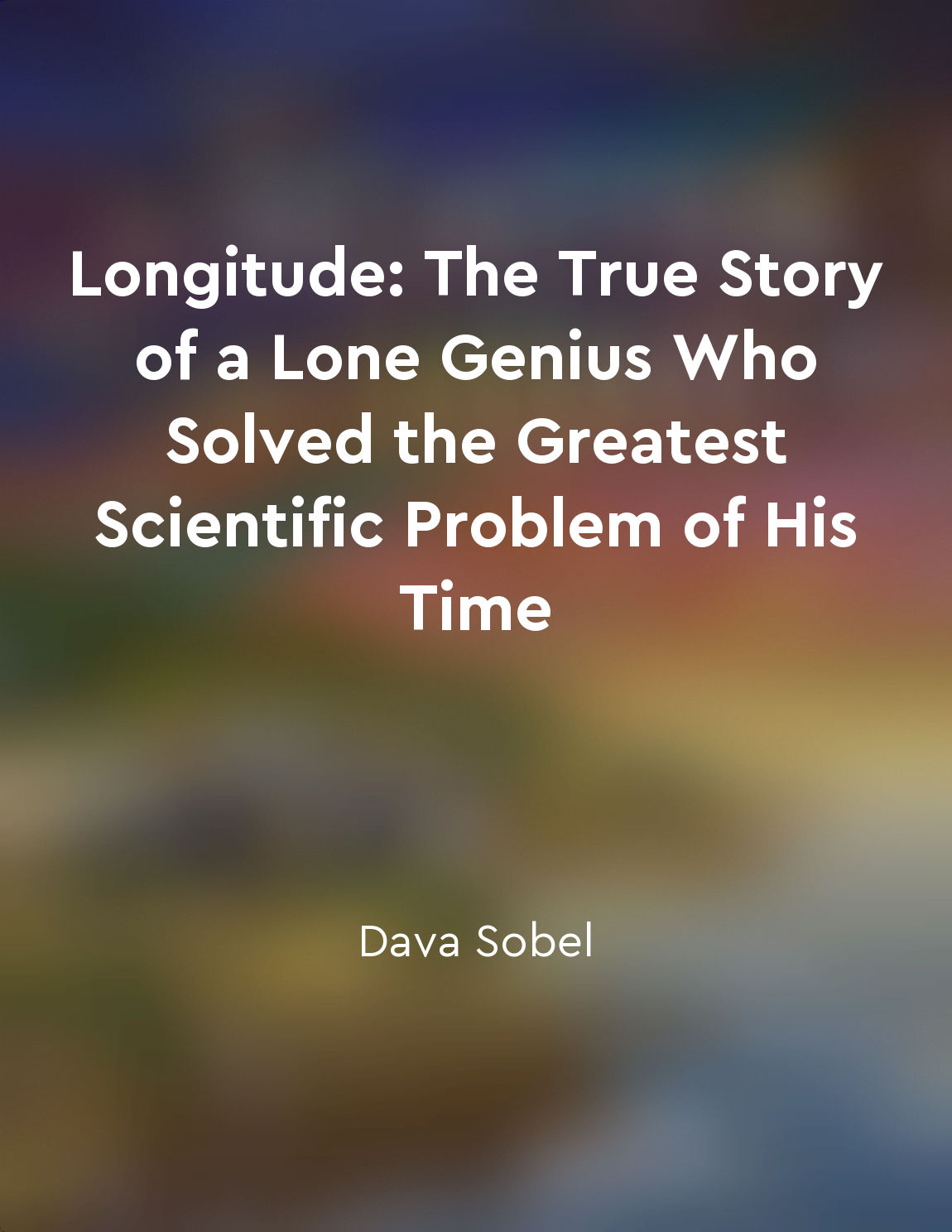Longitude prize awarded from "summary" of Longitude: The True Story of a Lone Genius Who Solved the Greatest Scientific Problem of His Time by Dava Sobel
The Longitude prize was a reward offered by the British government in 1714 to anyone who could solve the problem of determining a ship's longitude at sea. The prize was set at £20,000, a substantial sum of money at the time, equivalent to millions of pounds today. The problem of determining longitude was a pressing one for sailors, as the inability to accurately calculate their position at sea led to countless shipwrecks and loss of life. The Longitude prize was the brainchild of the British Parliament, which recognized the importance of finding a solution to this problem for the safety of its merchant and naval fleets. The prize was open to anyone, not just scientists or academics, and sparked a flurry of interest and activity among inventors, clockmakers, astronomers, and other individuals who believed they had a solution to the problem. One of the most famous contenders for the Longitude prize was John Harrison, a self-taught clockmaker who devoted his life to solving the problem of determining longitude at sea. Harrison's solution involved the invention of a highly accurate and reliable marine chronometer, a timepiece that could keep accurate time at sea and thus enable sailors to calculate their longitude based on the difference between local time and the time at a known reference point. Harrison faced many obstacles and challenges in his quest to win the Longitude prize, including skepticism from the scientific establishment and competing claims from other inventors. However, through sheer determination, hard work, and ingenuity, Harrison eventually succeeded in building a series of marine chronometers that were accurate enough to win the prize. In 1773, after decades of effort, John Harrison was finally awarded the Longitude prize for his groundbreaking work in solving the problem of determining longitude at sea. His invention revolutionized navigation and transformed the field of horology, establishing him as one of the greatest inventors of his time. The Longitude prize was a testament to the power of human ingenuity and perseverance in the face of seemingly insurmountable challenges.Similar Posts
He showed that mental illness does not define a person
John Nash's life story serves as a powerful testament to the idea that mental illness does not have to define an individual. De...

Health and medicine improved living conditions
Health and medicine have played a crucial role in improving living conditions for human beings throughout history. With advance...
Hamilton's early life was filled with hardship and struggle
Hamilton’s early years were marked by poverty, abandonment, and uncertainty. Born out of wedlock on the Caribbean island of Nev...
Communication barriers hindered the spread of knowledge on longitude
The knowledge of how to determine longitude eluded sailors for centuries. This crucial information was held back by communicati...
Ptolemy developed a geocentric model of the universe
Ptolemy, a Greek astronomer who lived in the second century AD, put forward a theory that gained widespread acceptance and held...
Harrison faced numerous challenges in perfecting his chronometers
Harrison's journey to perfect his chronometers was far from smooth sailing. He encountered a multitude of obstacles along the w...
Maritime disasters underscored the urgency of finding a solution
Maritime disasters, with their tragic consequences, served as a stark reminder of the pressing need for a solution to the probl...

